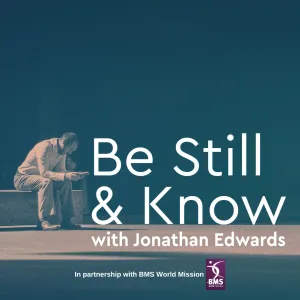March 23rd - Psalm 33:1–2
Playback speed
Psalm 33:1–2
Many of the psalms surrounding this one are full of descriptions of the psalmist’s pains and problems. He talks often about his enemies and those who are out to kill him. He tells us about his health problems and his times of depression. When we come to this psalm, however, the atmosphere is very different. The psalm bubbles with praise and confidence in God.
Praising God can be done in any number of ways, but it is interesting how often it is associated with singing. This has been true throughout history. We read about the angels singing at creation (Job 38:7) and, when Moses and the children of Israel crossed the Red Sea, they burst out in song, celebrating God’s deliverance (Exodus 15:1–19). Singing was integral to the life of the people of Israel and the Levites were given the responsibility of leading the singing. In the New Testament we find frequent references to singing too, and Paul encouraged his readers to “be filled with the Holy Spirit, singing psalms and hymns and spiritual songs among
yourselves, and making music to the Lord in your hearts” (Ephesians 5:18–19).
Singing is important because it enables us to communicate our deepest emotions. Throughout history, lovers have sung songs to one another, so it isn’t surprising that God’s people have wanted to sing in order to express their devotion and love for God. This doesn’t mean that we all need to have wonderful voices. One of my favourite memories of praise is of three people in one of the churches where I was the minister. None of them could sing in tune... and they knew it. But they still sang with huge enthusiasm and I just loved it. What was clear was their deep love for God and that’s what it’s about.
Question
In what way does singing help you to express your own praise to God?
Prayer
Lord God, I thank you for the joy of singing and for the way in which it unites me with your people throughout the world and history. Amen
Released on 23 Mar 2024
Coming up next

March 24th - Luke 19:36–39
Luke 19:36–39 Palm Sunday was a day full of surprises. Many people had hoped that Jesus might be the one who would kick the hated Romans out of the land. It would have suited them well if he had turned up on an impressive war horse and led a rebe...

March 25th - Luke 19:41–42
Luke 19:41–42 I will never forget my first visit to Jerusalem. A disabled friend of mine asked me if I would take him to Israel as his carer. He needed me to push his wheelchair, drive the hire car and lift him from place to place. We stayed in a...

March 26th - Luke 21:1–4
While Jesus was in the Temple, he watched the rich people dropping their gifts in the collection box. Then a poor widow came by and dropped in two small coins. “I tell you the truth,” Jesus said, “this poor widow has given more than all the rest of...
